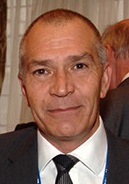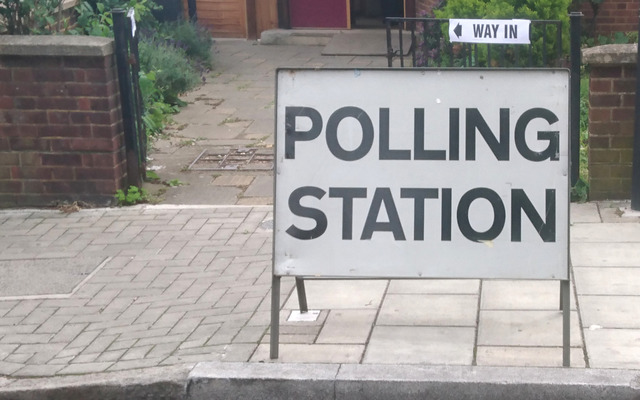Many voters face a triple whammy on election day in May with new wards, new locations for a number of polling stations and new voter ID rules taking effect, a councillor said.
Labour councillor Amanda Evans warned of the potential for chaos as a Brighton and Hove City Council committee approved the arrangements for the local area.
On Thursday 4 May, all 54 seats on the council will be up for election although those elected will represent 23 wards rather than the current 21.
The shake up includes name changes for some wards, some boundary changes and newly created wards and a rethink about where polling stations are located.
At the same time, new rules mean that voters will have to produce photo identification (ID) such as a passport or driving licence – or a new “voter authority certificate”.
The council’s Policy and Resources Committee was told that most polling stations tend to a 15-minute walk or less from the furthest house or flat in the area that they serve.
But Councillor Evans said that some voters in the new Rottingdean and West Saltdean ward faced a 24-minute walk to vote.
In the new Westdene and Hove Park ward, she said, some voters would face a 28-minute walk.
And in the new Whitehawk and Marine ward, those furthest inland would face a 21-minute walk or have to go by bus to their nearest polling station.
Conservative councillor Alistair McNair said that two polling stations in the new Patcham and Hollingbury ward would also be more than 15 minutes’ walk for a number of voters.
Councillor Evans said: “I’m concerned about voter ID. I’ve yet to come across a member of the public that knows there’s going to be a requirement for ID.
“I appreciate the council is going to communicate three times between January and May. I’m concerned that people who don’t have the right ID will be able to get a voter authority certificate from the council. I would like to know about it.”

The Green leader of the council Phélim Mac Cafferty said that he had written to the Cabinet Office to raise local concerns.
Councillor Mac Cafferty said: “A key loophole in the voter ID scandal is they seem very tight on one end of the spectrum but on postal voting – where there has been some fraud – you don’t need ID.
“You could actually not have to walk to the polling station and not necessarily present a form of identity by using postal voting. That could be all of our suggestions to our constituents in the upcoming period.”
Conservative councillor Steve Bell said that voters commonly used photo ID in European Union countries as well as in Northern Ireland.
The government published photo ID information on Monday (16 January) and Brighton and Hove City Council is writing to residents in three wards as part of a pilot project.

Councillors were told that not all councils were writing to voters. But after the pilot, Brighton and Hove City Council planned to write to all electors.
The council also has email addresses for 70 per cent of registered voters, it said, and they would be used to flag up the changes.
The new photo ID law permits people to use passports, driving licences, older people’s and disabled bus passes, PASS cards, EEA identity cards and biometric resident’s permits.
To apply for a “voter authority certificate” on the government website, people need to have a recent digital photograph and a national insurance number.








The need for voter indentification means that more people will opt for a postal vote, and so the cost per voter of a Polling Station will increase, which means that all-postal votes will soon become the thing across the country – with the greater problems that these will cause.
Life is changing incredibly quickly, and residents are becoming unnerved, I find.
There are no certainties this side of the grave: which is the one certainty, and the price of that increases.
Thanks for this – I’m so worried about the forthcoming elections as to having to take my photo ID with me, as they have done since 1983 in Northern Ireland and almost every other country worldwide requires voters to have.
Perhaps your Green Party friends will try to claim this as the reason why they are ousted in May rather than even ignoring the needs of residents, visitors, businesses, and non-cyclists whilst they waste our taxes on vanity projects.
I guess they’ll be going round the campuses again getting students to give them proxy voting authority?
Hopefully it will deter the students and Brighton and Hove finally get elected the party the residents want and not the legacy the students leave behind for us to suffer with for four years! Keeping my fingers cross that The Greens go to the bottom of the list followed by not to be trusted Labour.
How will it deter students? Most have a provisional driving licence to get into night clubs.
So you’re saying that people can only vote if they vote for the party you support?
Are you working for the secret police? How, otherwise, do you know who votes for whom?
Photo ID is totally pointless. Electoral fraud is very rare in the UK. The irony is in order to get around photo ID you can still use a postal vote, which has been argued is where most voter fraud occurs.
Without Voter ID how do you know that electoral fraud is very rare?
Peter and your other activist chums, do you have any evidence to suggest it’s not rare? As advocates for introducing voter ID, the requirement is on you to prove it’s required, not the other way round.
Nathan said that voter fraud was rare, but unless you check how do you know? How was any voter fraud identified previously?
According to this it was people reporting suspicious activity rather than varifying that the person voting was who they said they were. https://www.electoralcommission.org.uk/who-we-are-and-what-we-do/our-views-and-research/our-research/electoral-fraud-data/2019-electoral-fraud-data
It could be rife, so requiring ID, as required in Northern Ireland since 1983, and in almost all countries worldwide seems entirely sensible.
Why are you against such checks? Does the party you support rely on fraudulent voting?
I’ll tell you how you know fraud has happened: where a person has impersonated someone else, when that someone else turns up to vote it suddenly becomes rather obvious …
There were literally a handful of such cases documented at the 2019 general election, and as it says at the head of the link you have helpfully provided:
“The UK has low levels of proven electoral fraud.
There remains no evidence of large-scale electoral fraud in 2019.”
The reason this is coming in is because the UK Conservatives have looked across the pond and see how well voter suppression measures have worked for the US Republicans. It’s about discouraging those disposed to vote for your opponents from turning up.
In a word: cheating.
The only comfort is that that Tories are now polling so badly thanks to serial examples of dishonesty and economic mismanagement that it’s not going to work.
“15-minute city” here we come = voter will have to prove how they got there = no ferrying the voters to the polling station = or have i got my conspiracy theories mixed up?
Probably – and don’t forget a 15 minute city means a maximum of 7.5 minutes walking each way so you’ll need a polling station within about 600 yds/metres of your home.
Same applies to shops, dentists, doctors and schools 😉